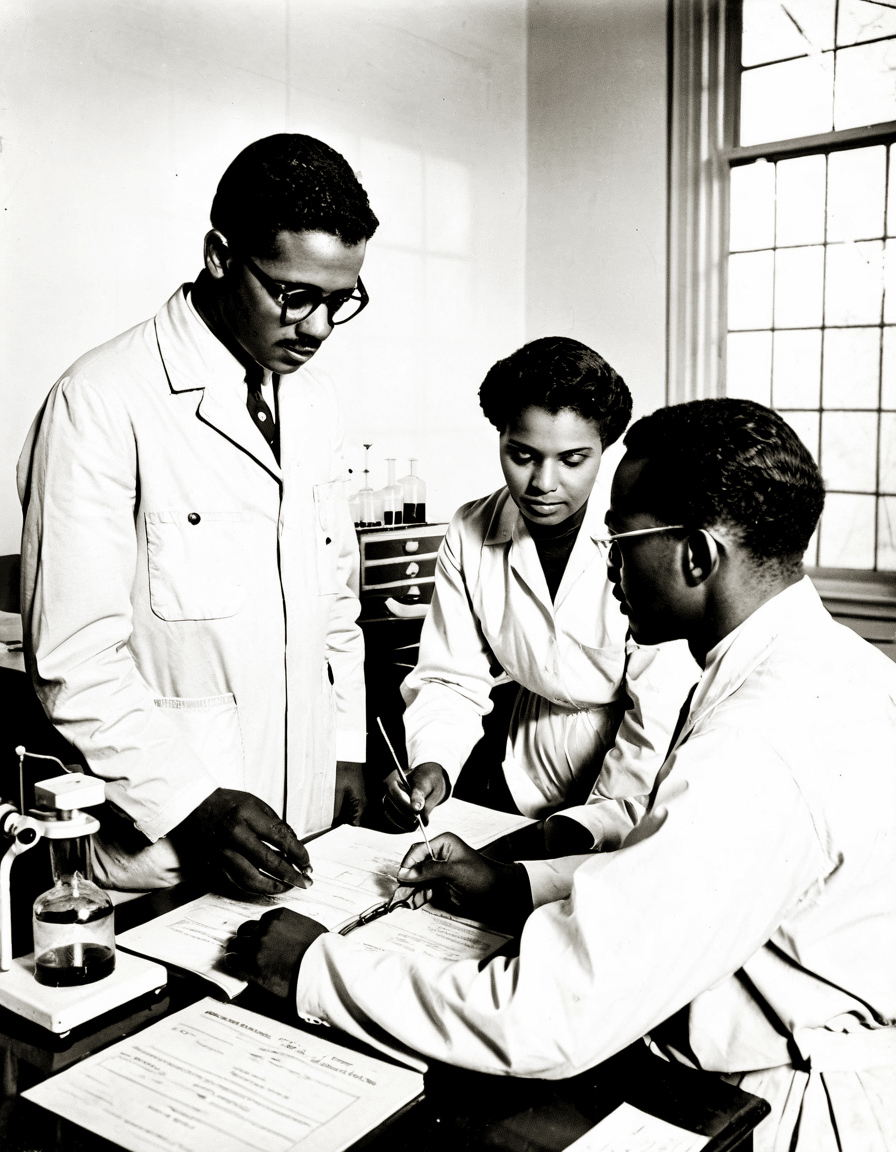The Tuskegee Syphilis Study is a name that evokes outrage and horror, exhibiting a tragic chapter in American medical history. Conducted by the U.S. Public Health Service from 1932 to 1972, this study shamelessly exploited African American men. It masqueraded under the guise of offering free healthcare while observing the natural progression of untreated syphilis. The deception, cruelty, and negligence encapsulated in the Tuskegee experiment have lasting repercussions worthy of a closer investigation.
Understanding the Tuskegee Syphilis Study: A Historical Context
The Tuskegee Syphilis Study emerged during a period when racial inequalities permeated all aspects of American life. Researchers targeted impoverished and uneducated Black men in rural Alabama, exploiting their socio-economic vulnerabilities. Deeming them accessible subjects, researchers committed heinous acts under the pretense of medical advancement.
Participants were misled about their health status, encouraged to believe they were receiving treatment for “bad blood.” In truth, they continued to suffer without effective care, even as penicillin was recognized as a remedy in the 1940s. Lacking informed consent, the study violated the fundamental ethical principle of respecting human dignity, heightening concerns around medical ethics in research.
This dark history has profoundly impacted public trust, especially in marginalized communities. African Americans often viewed medical institutions with skepticism, making healthcare disparities worse. The ramifications of the Tuskegee experiment can still be seen today as distrust continues, influencing healthcare decisions regarding vaccines, procedures, and education.

Five Key Takeaways from the Tuskegee Syphilis Study
The study’s participants were disproportionately poor Black men, raising ethical flags that still resonate. Exploitation has led to contemporary discussions about protective measures for marginalized groups in research, highlighting the need for stronger safeguards.
Misinformation prevailed as participants were misled into thinking they were receiving medical care. This deceptive practice underscores the crucial importance of informed consent—a core principle in research ethics that must remain uncompromised.
The horror of the Tuskegee experiment fosters a lingering mistrust among African Americans regarding medical institutions. This suspicion resonates today, significantly influencing healthcare decisions, particularly in light of recent public health initiatives, like the COVID-19 vaccinations.
The absence of regulatory oversight allowed this study to continue unchecked for decades. Following public backlash and exposure of the truth, significant changes in research regulations occurred, leading to the formation of Institutional Review Boards (IRBs) to prevent similar abuses.
The outrage following the study’s revelations sparked the creation of the Belmont Report, which articulates ethical guidelines for research involving human subjects. This report set a precedent for ethical practices, ensuring respect, fairness, and benefit to participants—a legacy that endures today.
The Tuskegee Experiment: Lessons Learned for Modern Medical Research
The lesson of the Tuskegee experiment echoes loudly in contemporary medical research. Emphasizing ethical treatment and the importance of patient trust has become paramount in fostering beneficial healthcare relationships.
Rebuilding Trust
In light of past transgressions, modern healthcare must work earnestly to rebuild trust. Successful initiatives include community engagement and conversations about historical grievances. Establishing transparent processes fosters better relationships and helps mend the trust gap.
Importance of Informed Consent
Informed consent has evolved dramatically since the days of the Tuskegee Study. Scientists must engage participants in thorough discussions, presenting potential risks, benefits, and alternative treatments upfront. This practice ensures participants are genuinely informed before joining studies.
Racial Bias in Healthcare
The Tuskegee Syphilis Study highlights the crucial challenge of addressing racial bias in healthcare. Modern research must actively confront these biases by ensuring equitable treatment and representation in clinical trials. Projects that prioritize diverse participant recruitment can significantly improve health outcomes.
Ongoing Ethical Challenges
Even today, ethical challenges persist in medical research, prompting lessons learned from the Tuskegee study to remain relevant. Rapid advancements in technology and genetic research raise new questions about privacy, consent, and participant exploitation. Continuous vigilance is essential to maintain ethical standards in the research community.

Embracing Ethical Evolution in Medical Research
The shadow of the Tuskegee Syphilis Study continues to spark dialogue about ethics in medical practices. These discussions are vital for ensuring that history doesn’t repeat itself. Advocating for an ethical framework that prioritizes justice and protects participants can build a strong foundation of trust between healthcare professionals and the communities they serve.
In conclusion, understanding the shocking truths behind the Tuskegee experiment pushes us toward a more ethical future, where all individuals receive respect and fair treatment in healthcare. Navigating the complexities of medical research necessitates that we remain mindful of our past, ensuring that atrocities like the Tuskegee Syphilis Study never happen again. By embracing these critical lessons, we lay the groundwork for progress and trust in healthcare, creating a future where ethics shine in the field of medicine.
Tuskegee Syphilis Study: Shocking Truth Behind Bad Science
Unveiling the Dark History
The Tuskegee Syphilis Study, which ran from 1932 to 1972, is one of the most infamous instances of unethical research in American history. Conducted by the U.S. Public Health Service, it aimed to observe the natural progression of untreated syphilis in African American men. What’s jaw-dropping is that the participants, mostly from the rural South, were misled and denied treatment, even after penicillin became the go-to cure in the 1940s. If that seems shocking, consider how far trust in medical institutions has come since then. Today, people are more vigilant, especially in matters like experimental treatments or clinical trials—concepts relevant not just in healthcare but also in fields like filmmaking, such as those discussed by Corey Micciolo.
The Human Cost and Cultural Impact
The consequences of the Tuskegee Syphilis Study were devastating, extending beyond just medical repercussions. Lives were ruined, families torn apart, and communities traumatized. Some researchers argue that this study not only violated ethical standards but also contributed to ongoing mistrust in the healthcare system among African Americans—a sentiment still felt today. In pop culture, you might find allusions to this historical fiasco in various forms of media, even in humorous setups like those found at the Studio Movie grill, which showcases films reflecting on societal issues while entertaining movie-goers.
Lessons Learned
As we reflect on the Tuskegee Syphilis Study, it’s essential to recognize how far we’ve come and how much more work lies ahead. Victims were not just statistics; they were human beings with hopes and dreams, much like talented individuals today, including people like Lusia Strus or well-known names such as Jaid barrymore who resonate with audiences in meaningful ways. The lessons learned from this dark chapter have sparked dialogues that influence current research ethics and patient rights.
In a world where information is rapidly shared, it’s crucial to stay informed and challenge deceptive practices. As you think about this pivotal moment in medicine, don’t forget how it has spurred more equitable practices in healthcare while serving as a reminder of the past. The conversation continues, and probing questions still surface, much like those around sensitive topics such as nuclear weapons discussions tied to nations like Israel.
Each revelation about the Tuskegee Syphilis Study encourages a broader recognition of human rights within research. Knowing this history helps spotlight the importance of consent and the sanctity of lives involved in any study—an understanding that no one should take lightly, especially as educational content becomes more accessible online, even as entertaining and engaging as learning about Canciones or recent news from Attleboro or Long Island.




